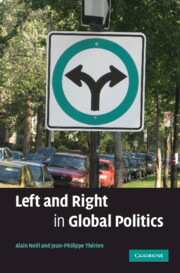Book contents
- Frontmatter
- Contents
- List of tables
- List of figures
- Acknowledgements
- Introduction
- 1 A clash over equality
- 2 A worldwide value divide
- 3 Two tales of globalization
- 4 The rise of the modern state system (1776–1945)
- 5 The age of universality (1945–1980)
- 6 The triumph of market democracy (1980–2007)
- 7 Twenty-first-century rapprochement
- 8 The core currency of political exchange
- Conclusion
- Index
- References
2 - A worldwide value divide
Published online by Cambridge University Press: 05 September 2012
- Frontmatter
- Contents
- List of tables
- List of figures
- Acknowledgements
- Introduction
- 1 A clash over equality
- 2 A worldwide value divide
- 3 Two tales of globalization
- 4 The rise of the modern state system (1776–1945)
- 5 The age of universality (1945–1980)
- 6 The triumph of market democracy (1980–2007)
- 7 Twenty-first-century rapprochement
- 8 The core currency of political exchange
- Conclusion
- Index
- References
Summary
How widespread really is the language of left and right? One could recognize the clash about equality just described, but consider it largely a concern for experts and politicians, at a distance from the preoccupations and views of most people around the world. Outside the Western world, in particular, the left–right dichotomy may seem less relevant as a heuristic tool. This chapter uses global public opinion trends to demonstrate, on the contrary, that practically everywhere citizens understand this representation and position themselves along an axis going from left to right. The left–right cleavage is neither Western, nor passé. It is ubiquitous and very much contemporary.
This chapter presents worldwide survey results that establish the near-universal relevance of the left–right division and its coherence for most people, who associate the two sides with the expected attitudes about equality, redistribution, and the role of the state. Country-specific data also confirms that these findings hold across very different regions and cultures of the world. The left–right debate is truly global. Indeed, in both national and comparative studies of public opinion, no cognitive instrument, no scale measuring personal values is more powerful than the way respondents locate themselves on the left–right continuum. Even scholars who claim that the left–right cleavage is in decline or in transformation cannot but conclude that it still incorporates most of the other attitude differences they seek to explain. This opposition is the most central value divide that political parties built as they struggled for, and about, democracy.
- Type
- Chapter
- Information
- Left and Right in Global Politics , pp. 32 - 55Publisher: Cambridge University PressPrint publication year: 2008



